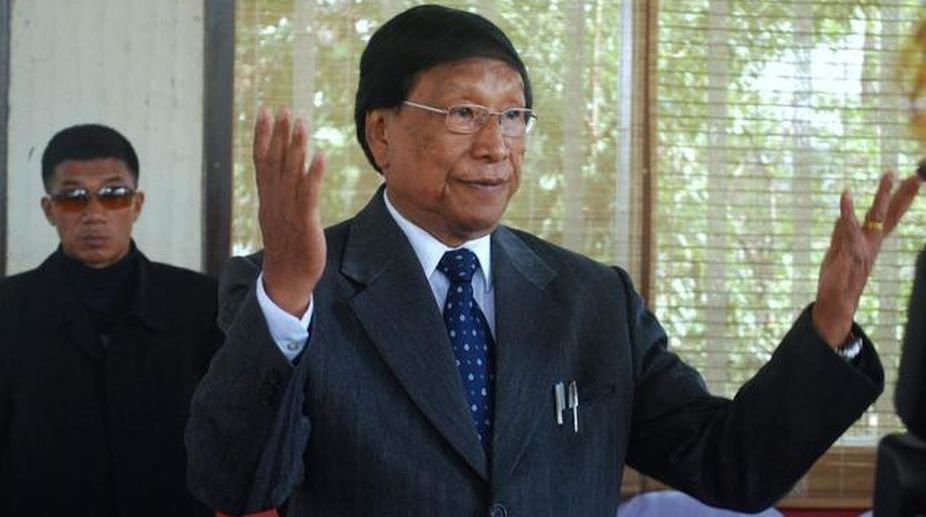There is little doubt that unity among Nagas and unification of all militant factions is the sine qua non for lasting peace in Nagaland. Not that no efforts in this direction have been made, it is just that faction leaders themselves have dealt severe blows to such unity hopes. As early as June 1999, NSCN (IM) general secretary Th Muivah put paid to any pretension of unity/unification when he said “others” were irrelevant to the process of finding a solution to the Naga problem. The reconciliation process, initiated by the opinion-forming Naga Hoho in December 2001, folded up within months of its formation after the NSCN(IM) leadership objected to the inclusion of two members who belonged to the Angami community of Naga National Council president, the late Zapu Phizo.
Muivah is on record as having said “reconciliation cannot be forced, it must come naturally.” He wants his bête noir, the Khaplang faction, to admit its mistakes, meaning the killings of several comrades-in-arms at the time of parting company in 1988. Khaplang, on the other hand, claims it is the Muivah group itself which had made the mistake, so it must atone for it.
Not much is heard these days of the Forum for Naga Reconciliation that came into being in 2008 and whose efforts helped reduce fratricidal casualties. It also succeeded in bringing together the leaders of all the three warring factions ~ the NSCN(IM), NSCN(Khaplang) and NNC/federal government of Nagaland ~ at a meeting in Dimapur in September 2010. It was described as “the priceless gift to the people of Nagaland”. Though a signatory to the 2009 “Covenant of Naga Reconciliation” (Chiangmai, Thailand) arranged by the FNR, Khaplang did not attend the meeting. The FNR must involve itself in furthering the peace process.
After unilaterally abrogating the 14-year-old ceasefire pact with the Centre in March 2015, Khaplang today leads the United Liberation Front of Western South-east Asia. Its members include the Ulfa (Independent), several Meitei armed groups as well as Bodo and Kamtapur Liberation Organisation rebels. Khaplang is safely ensconced in Myanmar after signing, in 2012, an accord with Yangon.
However, for overall peace and harmony in Nagaland, his presence cannot be wished away. Given this, the Centre’s insistence that for the final settlement, all stakeholders must come together is a pragmatic approach.
Ultimately, peace depends entirely on whether Muivah, the sole Naga leader left to shape the Nagas’ destiny, will be prepared to come down from his high horse and soften his somewhat aggressive and rigid demands.











